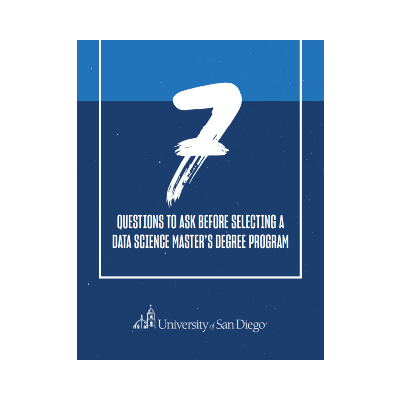More information than ever before is shared digitally, encompassing everything from finances to addresses, meaning data management and protection have become priorities across industries. That effort falls on a database administrator — an expert in organizing the systems that store all types of personal data.
Keep reading to learn about the growing importance of data and the need for skilled database administrators.
What Is Database Administration?
Database administration involves establishing computer systems in-line with a company or organization’s specific needs. Systems often need updating and fine-tuning to stay effective and secure. Database administration often intersects with data science, with the two relying on each other to organize and secure data.
While data scientists depend on databases to access and retrieve data for analysis, database administrators ensure that data is reliable. Both roles are highly valued in today’s tech-centric world, meaning that there’s a place for each in various industries.
What Is a DBA?
In this field of work, database administrators (or DBAs) set up computer systems that companies and organizations rely on to operate. DBAs are responsible for ensuring that those systems stay functional, including making adjustments as needed. They are often part of a technical team also made up of computer programmers and managers.
The work of a database administrator is complex and best performed by proven problem-solving experts. Part of the job involves the security of personal data stored in the systems that database administrators create. That means DBAs must be ready to work whenever a threat arises.
Database administrators are employed in virtually any industry, but these are some of the most common areas:
- Finance and insurance
- Computer systems design
- Information
- Educational services
- Management of companies and enterprises
Database Administrator Responsibilities
The day-to-day responsibilities of a DBA generally include:
- Monitoring and maintaining company databases
- Addressing updates and requested changes to the system structure
- Ensuring security and system availability for stakeholders
- Collaborating with data scientists and developers
- Maintaining backup infrastructure
DBA Job Titles and Salaries
DBAs can hold various job titles with a range of salaries. Below are some of the most common. Keep in mind that compensation is dependent on the market, an individual’s experience and the specific role being sought. The median pay for database administrators in 2021 was $101,000.
| JOB TITLE | AVERAGE SALARY |
|---|---|
| Computer and information systems manager | $159,010 |
| Computer systems analyst | $99,270 |
| Network and computer system administrator | $80,600 |
| Computer support specialist | $57,910 |
How to Get Into Database Administration: Skills, Education and More
Wondering how to become a database administrator? Certain technical and soft skills are generally required for success in the field. These are some:
- Technical skills
- Knowledge of database management systems
- Familiarity with programming languages
- Understanding of data modeling and normalization
- Experience with cloud-based database services
- Soft skills
- Problem-solving and critical thinking
- Communication and collaboration
- Time management and organization
- Willingness to learn new technologies
- Attention to detail
- Qualifications, certifications and degrees
- Certifications
- By industry, for example, the Oracle Certified Professional, Database Administrator (OCP-DBA) certification. Oracle is regarded as a leading provider of database management systems and offers a certification to instill a comprehensive understanding.
- By vendor, such as IBM, SAP or Microsoft
- General, including CompTIA Database+, for those early in their career
- In related fields, among them project management, cyber security and information technology infrastructure library (ITIL)
- Certifications
- Relevant bachelor’s degree:
- Computer science
- Information technology
- Management information systems
- Data science
- Relevant graduate degree
5 Steps to Become a Database Administrator
Become a DBA by following this step-by-step process:
- Obtain relevant education and certifications. Explore options and choose which one works best with your prior commitments, finances and career goals.
- Gain hands-on experience through internships or entry-level positions. There are many benefits of learning on the job, from mastering skills to meeting experts and possibly setting yourself up for a permanent position once education is complete.
- Network with professionals in the field and join relevant associations. The benefits of connecting with skilled professionals and gathering advice is boundless. Take advantage of opportunities to learn from others’ experiences.
- Continuously update your skills and knowledge through professional development. Commitment to lifelong learning is an excellent way to better yourself and your industry. Technology is constantly evolving, making this step of utmost importance.
- Pursue advanced degrees and certifications for career growth. Education must keep pace with advancements in the field. This can be achieved through earning degrees, certificates or any relevant course.
In today’s data-driven world, there’s ample opportunity for anyone seeking a career change to pursue database administration. As you advance your knowledge base and consider advanced education opportunities, consider these seven questions to help you choose the applied science master’s degree program right for you.




